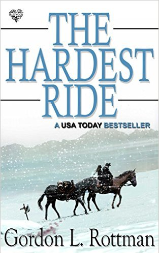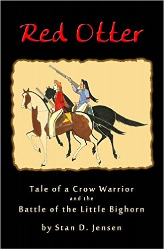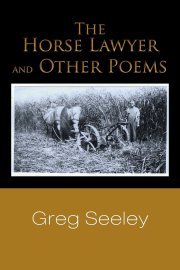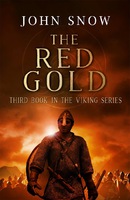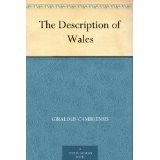The Hardest Ride
By Gordon L. Rottman
A review by Steven D. Malone
How do you classify The Hardest Ride?
Mr. Rottman calls it a Western Romance with a large body count. I picked up my copy of The Hardest Ride at an author’s book sale in a small Texas library and Mr. Rottman described it as that and as YA, or maybe a NA, or just a Western. I think it is all that and maybe a bit more.
The Hardest Ride is a mash up of the Western genre and a pleasing one. A fast paced fun read.
The main characters, young “cowpuncher” Bud Eugen and mute Marta, are each immediately likeable. They, as well as all the book’s characters, are tough, flawed, and deeply drawn. The good ones earn a reader’s empathy and he or she will grow to truly care about them. The bad ones are truly bad but not mere cookie-cutter caricatures.
The settings and details are vivid and accurate. One can tell that Mr. Rottman has been there. The reader sees, tastes, smells and hears West Texas and Northern Mexico. He or she rides the trail, sweats the toil, fears the danger.
The Hardest Ride gets 4 Stars from me mainly because, though the 1st person point of view adds to the realism, poor young Bud’s “internal dialogue” was (to me) a bit too much. It reminded me of Frodo’s ruminations in “The Lord of the Rings – The Return of the King” movie and affected the pace of the story. This is a personal opinion and I do not think others will find it as much of a problem.
The Hardest Ride is a good book and has earned the awards it’s received and its rank as a best seller.
Once There Were Buffalo
A review of Red Otter
By Stan D. Jensen
by Steven D. Malone
5 Stars
We forget that the Native Americans of the Great Plains were not a single entity but rather a collection of nations and tribes. And, as often as not, warred against themselves even as they warred against the incursions of the White Man. We also forget that Gen. George Custer had scouts from the Crow nation with him when he road to his doom at the Little Bighorn River.
Stan D. Jensen reminds us of this in his novella, Red Otter.
His story is that of an Irish boy adopted by Crow Medicine Chief Iron Bear, and his wife, Green Leaf Woman. They named the boy Red Otter and raised him to become a warrior feared by Crow enemies, the Cheyenne and Lakota nation. Red Otter came to stand beside Gen. Custer at the Battle of the Little Bighorn.
Mr. Jensen wove a brightly colored and full tale of the Crow nation and its people, as well as of the great battle that came to define the United States’ successes and failures as it tried to deal with the land’s native peoples.
A reader will come to know and like Red Otter and his family. Mr. Jensen drew a deep and rich collection of characters, as he has done in his other works. He does the same with Custer and many other men and officers participating in this tragedy.
His research into the Crow, Lakota, and Cheyenne cultures fascinates. The image of battle along the River is vibrantly drawn. As always in Mr. Jensen’s work, the prose is well paced and vivid. His characterization pulls empathy from the reader and you genuinely grow to like them all, even the antagonists among the enemies of the Crow.
I actually tried hard to find fault with Red Otter because no one wants to believe a 5 Star review, but this is a 5 Star read worth the reader’s time.
The Horse Lawyer and Other Poems
By Greg Seeley
5 Stars
I purchased “The Horse Lawyer and Other Poems” on my Kindle Paperwhite.
Mr. Seeley truly is the Poet of the Heartland.
This book of verse demonstrates the author’s clarity of vision and poet’s soul.
He draws vivid and most human characters. His sense of setting has few equals in my opinion.
Mr. Seeley’s book takes you to the Heartland and allows you to get to know well many stout hearted people as you enjoy the fields and skies you know are there.
The Hemingway-like style adds to the immediacy of place and the depth of feeling of everything the poet brings to his readers.
His stories, and that is what they are, cover a salt-of-the-earth family and a piece of land across 125 years from the end of the Civil War, through the Great Depression, and onward as his characters struggled and loved and farmed the land.
Take it from one who generally does not read poetry from modern authors, this book will delight you and move you, take you to a wondrous land and give you new friends.
Red Gold Review
2/14/15
4 Stars ****
What a ride!
This is the third installment of John Snows The Viking Series. It continues the saga, for there is not a better word for what Mr. Snow writes, of Sigve the Awful. Sigve is a young Northman, and the heir of Vik, who finds himself becoming ever more deeply ensnared in the politics and wars of the turbulent world of the Viking Kings.
The novel, Red Gold, finds the youth still carrying the rune etched sword that brings him victory. Still struggling to understand the lore of his friend Grim. And, even more in thrall to his lust for beautiful Yljali. Now, however, he stands atop a gold hoard wanted by the powerful and the greedy that infest the mountains, the seas, and dark forests around Vik. By his wits and his strong arm he struggles to find a way to survive.
I feel that Red Gold started a bit too slowly. And, at least at first, I thought it meandered in the beginning and was belabored with too much description.
After the first several pages I began to again be drawn into the “world” of the North that is found in the other books of Mr. Snow’s series. There was something I began to sense in his style. In his word choice, his pacing, and the structure of his phrasing. I’d read the like before in the better translations of the Icelandic sagas and the epics of old Germanic literature as translated by such men as William Morris. I started to feel that I was being told a story by a skald. A prose tale surely but Mr. Snow’s telling had the sense of true skaldic literature. Truth told, however, such approaches to tale telling are difficult to get used to. And they, to me, require a bit of familiarity with such genres by the reader to be fully appreciated.
The world Mr. Snow creates is complete and authentic. His prose is vivid. His story is gritty, gory in places, and often explicit. Be ready for that also.
Beyond the slow start and the difficulties in getting used to the way he tells the story, I also felt that his ending was abrupt. There were some loose ends left on the table. I trust that these will be rewoven in later installments.
If you like stories in the way of such writers as Robert Low and Giles Kristian you will enjoy Red Gold and the others in the series. I feel though that you should read the others of The Viking Series first. This may not be a “stand alone” novel.
A great read but for the reasons listed I gave it 4 Stars. (Shhh, it’s a 5 Star read for those familiar with Nordic literature.)
The Description of Wales
by Giraldus Cambrensis
5 Stars *****
Geraldus writes from his century but his prose scans well with readers of today. Insights into the people, superstitions, and landscapes of Medieval Wales abound. Writers from Goodrich, to Ashe, to Bernard Cornwell use 'The Description of Wales' as a key primary source to the life and times of the period.
Geraldus' book, to me, is essential reading for those interested in ancient Britain, the Medieval Catholic Church, even the Crusades. And, its vivid, readable prose and sense of wit and humor hold our attention.
Dive in. You will enjoy it.
http://www.gutenberg.org/ebooks/1092
The Slayer Rune by John Snow
4 Stars
A review by Steven D. Malone
This excellent tale is a departure from the typical Viking fiction. No tragically orphaned natural born killer is kidnapped by raiding Vikings to learn sword and sea craft, earned the admiration of hard-bitten Nordic pirates, and finally becoming the ship lord. This is a tale of life lived in the gards by the men and women who gave birth to those mythic sagas.
It's a fun read. Sigurd is a wonderful character, excellently drawn, and watching him grow is captivating. I mean watching him. Snow's style paints vividly. Ylajali . I truly ache for her. Of course,
Grim is my favorite 'costar'. I really identify with him.
The ending surprises, stuns, and satisfies. It completes the tale. It is also the perfect set up for what promises to be a series.
I gave it 4 stars but wish I could give it 4.75 stars. I have two reasons. The first is truly my fault for I had trouble sorting through the Nordic names so foreign to me. The second is due to Snow's
unfamiliarity with our language that allowed several anachronistic phrases to sneak in that was a distraction to his otherwise excellent use of culturally specific language.
After Rome: A Novel of Celtic Britain
4 Stars ****
Though a nice enough read, [book:http://www.amazon.com/After-Rome-Novel-Celtic-Britain/dp/0765331233]is not my favorite of her books.
After Rome takes place in the years following the Roman Legion's with withdrawal from Britain in 410 B.C.E and shows the dangers and decisions faced by the Romanized Britons left behind in a now crumbling and defenseless nation.
As the two main characters struggle to rebuild a semblance of life and safety they gather allies and try to stay alive against the elements and encroaching Anglo/Saxons.
I felt that Ms. Llewellyn phoned in this book. She gives a hint of great characters then left them incomplete leaving too many reader questions unanswered. As always, her research was good though, as a student of Dark Age Britain, I felt that even the disintegration was rushed and inexplicably compressed. She left me wanting more realized characters and a better painting of the life and times of a fascinating location and era. Her books of Irish heroes were a better effort.
ETHAN’S PEACH TREE – A Novel of the Civil War by Stan D Jensen
A review by Steven D. Malone
I give 5 Stars to ETHAN’S PEACH TREE – A Novel of the Civil War by Stan D Jensen.
Ethan’s Peach Tree tells the story of battle in Georgia during Sherman’s march to the sea. Brigadier General Nathan Edward Chambers leads his battle hardened Iowa Brigade, and his younger brother Ethan, to war.
Stan Jensen’s prose is vivid and artful. I do not know if Mr. Jensen intended to but his writing style pays homage to the educated ‘gentleman’ officers whose Civil War memoirs crowd the Autobiography shelves of our bookstores. Readers will freely picture Jensen’s scenes of war. Stunning images form all the contrasts of that conflict. All of battle turns between its glory and horror as his characters vacillate between gallantry and wet-your-pants terror. Everything good and heroic stands beside all that is evil and cruel in man.
Jensen’s research into all the details of the times, from landscapes to horsemanship, do nothing but enrich the allure and sympathy the reader has to his story and his characters.
When life got in the way of reading Ethan’s Peach Tree, I missed it. When I could return to it I was grateful. It will sit on my bookshelf so that it can be reread. An excellent effort, Mr. Jensen.
The Luck of the Weissensteiners – Book 1 of the Three Nations Trilogy by Christoph Fischer
A story that needs be told; ‘lest we forget’.
I give Christoph Fischer’s The Luck of the Weissensteiners – Book 1 of the Three Nations Trilogy 5 Stars. Here is a powerful story of the fate of Eastern Europe through the years of tragedy that was World War II. The author shows us, through the eyes of the Weissensteiner family, the disintegration of the whole of human experience from the pressures exerted upon the population from the Nazi way of conquest. All decency (as well as loyalty, friendship, even the ties of family) implodes upon itself driven to extremes by hate, prejudice, fear and propaganda.
We see the innocence of youth evolve into desperation as Nazism begins to strangle Eastern Europe. We see its effects harden and sour all it touches for victim and victor alike as the war progresses to its fated end and beyond into the unsettled peace that followed. Christoph’s powerful writing style makes you feel the lives and struggles, even the fates, of his characters. Readers will remember why this story needs to be embraced – not only so we not forget but so we not condemn ourselves to relive these tragedies.
A memorable literary event.
Steven Malone gave 4 Stars to:
A Memory of Light (Wheel of Time, #14; A Memory of Light, #3)
byRobert Jordan
read in February, 2013
Nice enough ending for this long series. I liked Sanderson's style - sometimes I think he did better than Jordan in places. He is a worthy successor. The battles are vivid and violent as followers of the series expected. I joined in the emotions of the characters as the last struggles came to them. I was mostly satisfied and I grieved a bit that the series ended. I devoted way too much of my life to reading it.
The Wheels of Time will be the last series I will ever read that is not completed. I found it late and was half way through volume 11 before I found out that Jordan died and that the series was to have more than 12 volumes. I never expected to know its end and there were characters that I cared about. The ending(s) should satisfy most fans.
I will never pick up a series not complete. However, authors please finish your series before you die.
Review of Lin Yutang 1 25 13
The Importance of Living
I regard the discovery of one’s favorite author as the most critical event in one’s intellectual development.
-Lin Yutang
My exposure to Chinese culture and philosophy comes, these days, through my experiences with Tai Chi Chuan and various other martial arts and Qigong. This study brings me close to many Chinese and Taiwanese people. None are more gracious, accepting, and friendly. I appreciate how their culture blends into ours so seamlessly.
Lin Yutang’s The Importance of Living is, to me, the best exploration of this blending and this contrast between our two peoples.
He is an essayist, writer, philosopher, linguist, and a cultural critic, among other many talents. And, The Importance of Living deserves to be on your bookshelf. From his table of contents get a quick feel of what you will experience: Approach to Life, Spirit and Flesh, On Being Mortal, On Having a Mind, On Human Dignity, On the Sense of Humor, How About Human Pleasure, On Growing Old Gracefully, On Conversation, The Art of Reading, The Art of Writing, and last but not least, The Return to Common Sense…
The best peek at this work is the blurb on the book’s cover:
‘The Classic Bestseller that Introduced Millions to the Noble Art of Leaving Things Undone.’
You will laugh. You will cry. You will wonder what in the heck you have done with your life.
Soldiers Rest review 1 10 13
I just posted a review at amazon.com and Goodreads for Kathryn’s book.
Soldiers Rest, by Kathryn Hohmann, is a ‘paranormal historical fiction’ novel set around the border between Maryland and Virginia at the turn of the last century. I was not familiar with the term ‘paranormal historical fiction’ before reading this book. Ms. Hohmann taught me with her delightful novel of the people and area around Soldier’s Rest.
I would like to give this book a 4 ½ Star rating if there was such a thing. I enjoyed getting to know her main character, Tess, and all the wonderful people that populate Tess’ world. And, I enjoyed the vivid details of that world as Tess sees it and lives it.
Ms. Hohmann is at her best in describing this world and in showing the ‘paranormal’ hauntings shadowing the aftermath of the great Civil War battle of South Mountain fought near there. The reader feels and lives those parts of the story as good fiction should impart to him or her. However, though I enjoyed the leisurely pace of touring her invention, she moved too slowly in getting to the paranormal aspects of her plot and that put a drag on the story. Had I not seen that label I would not have known that to be in the book until – what was it – chapter 3 or chapter 4.
If a reader relaxes and goes with it, Soldiers Rest, is excellent entertainment.

